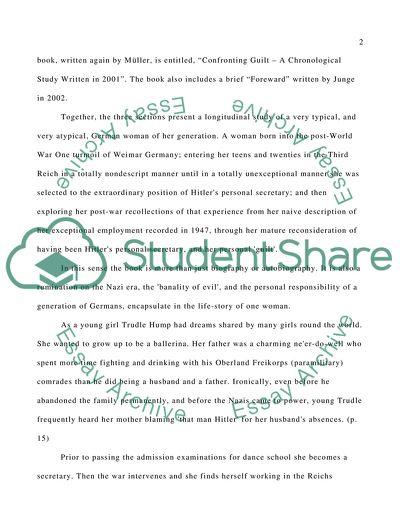Cite this document
(Hitler's Secretary Essay Example | Topics and Well Written Essays - 1250 words, n.d.)
Hitler's Secretary Essay Example | Topics and Well Written Essays - 1250 words. https://studentshare.org/biographies/1746410-traudl-junge-until-the-final-hour-book
Hitler's Secretary Essay Example | Topics and Well Written Essays - 1250 words. https://studentshare.org/biographies/1746410-traudl-junge-until-the-final-hour-book
(Hitler'S Secretary Essay Example | Topics and Well Written Essays - 1250 Words)
Hitler'S Secretary Essay Example | Topics and Well Written Essays - 1250 Words. https://studentshare.org/biographies/1746410-traudl-junge-until-the-final-hour-book.
Hitler'S Secretary Essay Example | Topics and Well Written Essays - 1250 Words. https://studentshare.org/biographies/1746410-traudl-junge-until-the-final-hour-book.
“Hitler'S Secretary Essay Example | Topics and Well Written Essays - 1250 Words”. https://studentshare.org/biographies/1746410-traudl-junge-until-the-final-hour-book.


